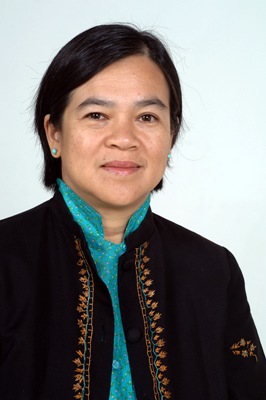This UNA-sponsored International Day of Women Celebration: Supporting Women in Global Leadership program was one of the most influential events I’ve had the opportunity to attend and participate in. I was fortunate enough to mediate the discussion portion of the event- something that first really frightened me, but ultimately turned out to be so incredibly illuminating. During the event, we had the distinct privilege to hear from Ambassador Eunice Reddick, American diplomat and former ambassador to Niger, Gabon and São Tomé and Príncipe, as well as (for the second time!),
 Khin Sandi Lwin UNICEF Representative with a 35-year career working in ten countries. I was so struck by the similarities in their experiences. They both shared almost identical anecdotes about subtle but impactful disrespect they faced as women in their field. Even as such distinguished and accomplished members of the international community, these two women still find themselves being dismissed and talked over by male counter parts. Their experiences reinforce the truth that there is very little that women can control when it comes to mitigating gender-based mistreatment. When talking about gender issues, I've found that people frequently look for ways that the women involved can solve the issue, when really, it is obvious that women are not at fault. This idea connects to Khin Sandi Lwin's leadership work. As she shared in the event, Khin Sandi works with both men in women in leadership as a way to educate men on the ways in which they are unconsciously contributing to misogynistic tendencies in the workplace. I felt so so lucky to have been able to speak with Eunice and KhinSandi- I know that experience will stay with me for a long time.
Khin Sandi Lwin UNICEF Representative with a 35-year career working in ten countries. I was so struck by the similarities in their experiences. They both shared almost identical anecdotes about subtle but impactful disrespect they faced as women in their field. Even as such distinguished and accomplished members of the international community, these two women still find themselves being dismissed and talked over by male counter parts. Their experiences reinforce the truth that there is very little that women can control when it comes to mitigating gender-based mistreatment. When talking about gender issues, I've found that people frequently look for ways that the women involved can solve the issue, when really, it is obvious that women are not at fault. This idea connects to Khin Sandi Lwin's leadership work. As she shared in the event, Khin Sandi works with both men in women in leadership as a way to educate men on the ways in which they are unconsciously contributing to misogynistic tendencies in the workplace. I felt so so lucky to have been able to speak with Eunice and KhinSandi- I know that experience will stay with me for a long time.

Comments
Post a Comment